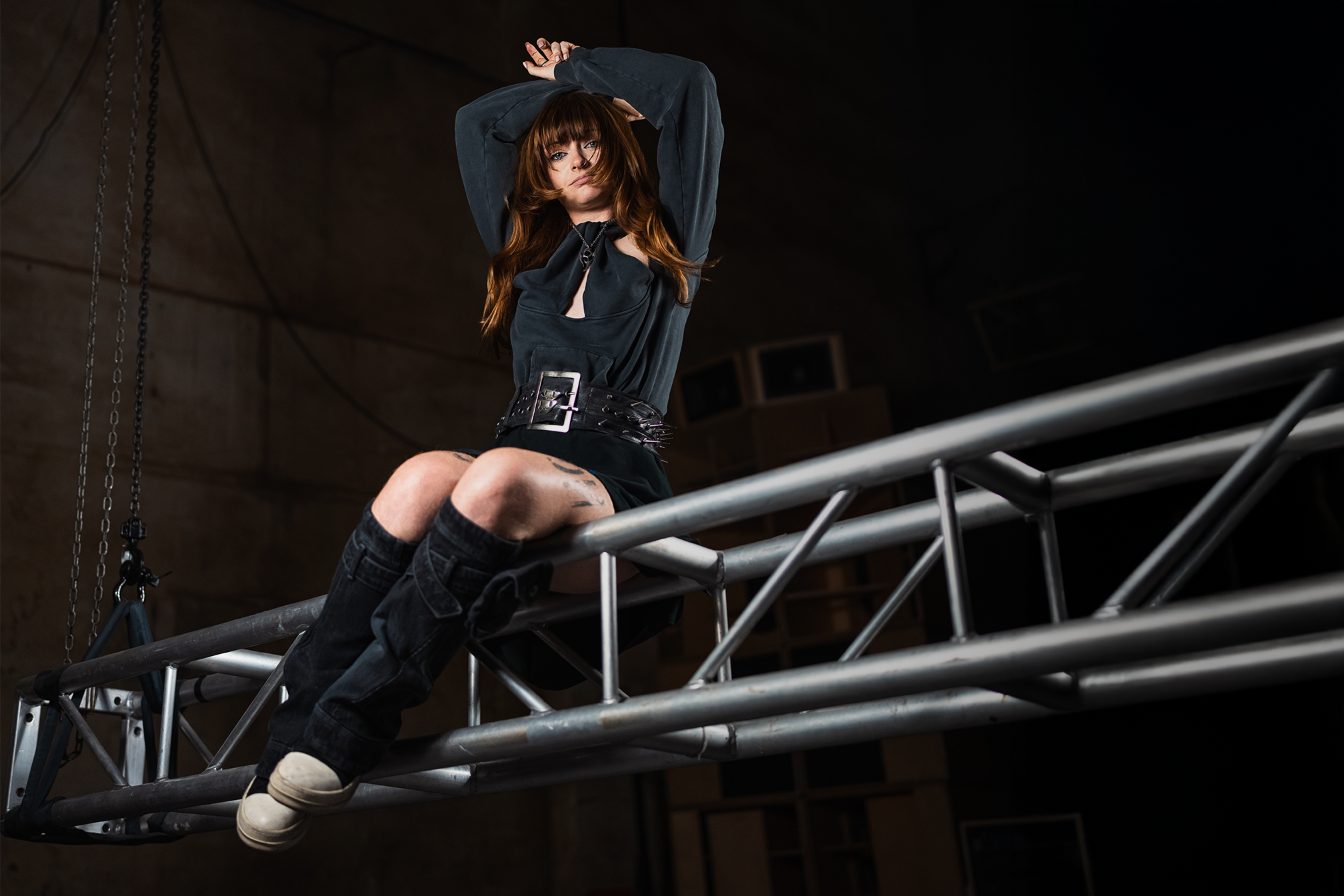 COVER STARS
COVER STARS
Ninajirachi: Chronically online, critically acclaimed
Producer, DJ, and now eight-time ARIA Award nominee for her debut album 'I Love My Computer', is Mixmag ANZ's Cover Artist for October 2025.
“When I was ten years old, I thought that my life was just happening to me. But being older now, and seeing other people reflect on the same things, I’ve realised that there are people like me.
That’s a really nice feeling to have.”
-
In an increasingly globalised, fast and demanding world, it can be easy to feel like some things happen a little too quickly. One only has to take a look at pop culture to understand the speed or frequency with which moments, events and people seem to grip the world, tight as they do for all of fifteen seconds, before disappearing forever.
In music, the time between moments also grows shorter and more fragmented. This is increasingly true for Australia, whose musical output to the global stage can often leave little room for competing sounds and ideas, until eventually one sound, act, or event can hit a sweet spot, impossible to ignore for everyone.
‘EDM’ is an increasingly broad term, much like ‘techno’, but one that has never truly received a comfortable foothold within Australia’s dance music landscape. Festivals of yesteryear like Stereosonic, Creamfields and Parklife were the relatively short-lived home for some of the world’s biggest DJs and producers of the time, and at that time, the festivals that Australia’s dance scene had become known for on the global stage. Nowadays, however, that tier of festivals, promoters, and venues is one that has shifted its attention towards a type of electronic music generally seen as less commercial, less pop-inspired, and, generally speaking, with far less vocals. Overseas festivals like Ultra continue to operate here at home, but there’s little in the way of a local voice for Australia’s EDM.
That is, arguably, until now.
Ninajirachi, producer, DJ, and now eight-time ARIA Award nominee for her debut album ‘I Love My Computer’, is Mixmag ANZ’s Cover Artist for October 2025.

In the writing of this feature, there have been several moments that have necessitated considerable edits, all coming down to the release of and reception to Nina’s record. Recorded initially before its release, the album, released last month, has seen Nina secure insane levels of radio coverage and playlisting not only at home, but overseas, with appraisal from the likes of Anthony Fantano, sold out shows across North America in the wake of its release, and now, eight ARIA Award nominations.
While the ARIAs have never been a be-all end-all marker of the quality of musical work, what Nina’s nominations and praise say is beyond clear:
This is a generational talent that everyone has taken notice of.
One might think that Ninajirachi’s rise to being almost everywhere happened overnight, but they couldn’t be more wrong. In actual fact, her debut record, ‘I Love My Computer’, is the culmination of around twelve years of her life. At the age of 26, born right on the cusp of the 21st century, the album comes as only the latest in a consistent string of releases since 2017, when she released ‘Pure Luck’, with vocalist Freya Staer, at the age of 17.
For an artist to now sit at the forefront of electronic music across the globe, let alone Australia, it can be easy for casual fans to see that person for what they are now, rather than with the context that makes them who they are. The concept of self-image has become crucial to us all, and to some extent, essential for artists to reach new fans.
On ‘I Love My Computer’, however, Nina bares all of herself, giving us, as listeners, an insight into her world and a glimpse into the process of writing, recording, and compiling to create that story, which has spanned several years.
The story of a chronically online young person, inspired by Sophie, who regularly chats in forums, uses anime chat icons and y2k emoticons, and has a passion for forward-thinking electronic music, may sound like a trope to many. In reality, it is a unified experience for many young people, whose social lives, passions, and identities have been significantly influenced by their access to technology and the communities that gather within it.
“I’ve always loved my computer, but I think the first time I felt like I loved ‘my’ computer was when I got my first laptop,” Nina told me. “That was a really distinct change between, you know, having to use the shared family home PC that was just in a room.
I’d have to look forward to going home from school to go on the computer, versus when I got my laptop,” she continued. “I was about 14, and it was just a skinny, little PC laptop. It wasn’t very powerful at all, but it was ‘my’ computer. Then, I could start making music anywhere, like on the bus, or even in class.”
Across the record, Nina speaks on behalf of everyone with even a remotely shared similar experience. For all of us, to varying degrees, a computer is our access point to the world, to ourselves, to love, to desire, fear, shame and pride. In an era largely dominated by technology, this may not seem particularly newsworthy, but beyond the way Nina strings the relatability of this story together, there’s a context that is individual to her, which says even more.
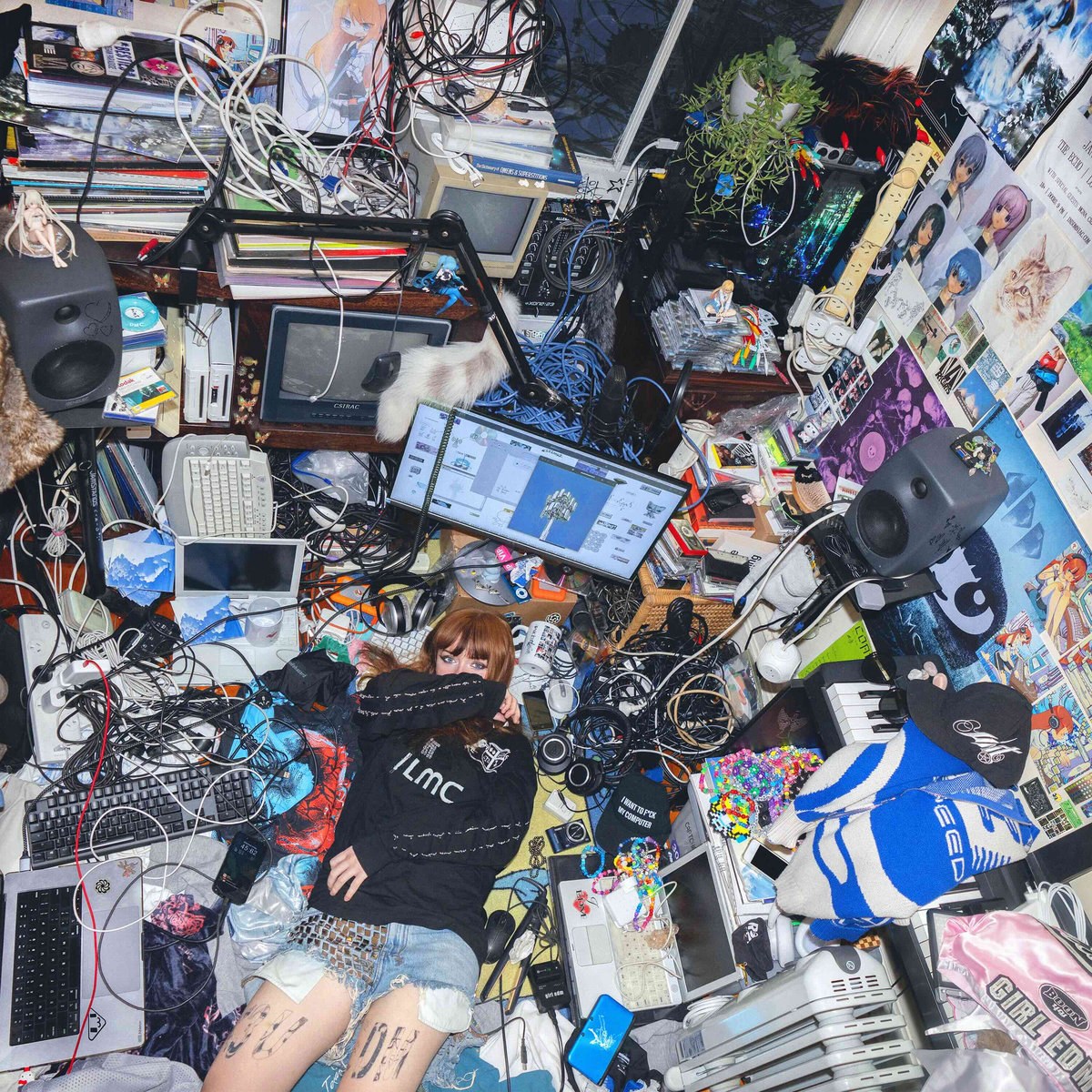
Nina grew up in Kincumber, NSW, a beachside town of around 7,000 people as of the 2024 Census, 16 kilometres from Gosford, and a little over an hour’s drive from Sydney.
To many, electronic music is an understandably city-aligned sound and culture. Although in Australia, particularly, there is a long-standing trend of events taking place in more remote and rural areas, a dance floor is generally at its best when there are plenty of like-minded people to join it. As a result, there’s a growing understanding that the path to being a producer or a DJ is one that’s made, like many things, far easier for those with access aided by finance, free time, and a conveniently located upbringing. A city lifestyle is increasingly more expensive, and having the free time within a city to choose to go out, play music, or create it is a privilege only becoming more relevant.
It’s in this context that an entirely separate dimension to ‘I Love My Computer’, and to Nina’s own meteoric rise to prominence, becomes clear: a passion relatively unbound by geographical inconvenience.
Nina’s relationship with music production started at an incredibly young age. In ‘Sing Good’, she reflects on her experience of living on NSW’s Central Coast, and how, even today, it informs her approach to making music and putting herself at its forefront.
“I used to get the bus to school, the time was all it costed
It took about an hour to get from Kincumber to Gosford
One headphone in my ear
Other one in Zahra's
Phases moving faster than the wheels
I used to look the lyrics up and Google what's a chorus
Wrote some of my own and used GarageBand to record it
Coz I can't really sing good
But I'm still gonna try it
I might even like the way it feels”
Like many young people forming an identity in more remote and rural areas, Nina relied heavily on technology and the internet to help inform her idea of what the world had to offer. This experience has led her to go beyond the usual expectations and pressures placed upon artists, having set up a regularly active Discord channel for her fanbase, resulting in no shortage of incredible moments of connectedness.
“That server is like something that I would have wanted to be a part of when I was younger. I had this awesome experience when I played my first show in London… I was meeting people after the show, and three girls had met online in my server and then came to the show together and met there for the first time in person.”
In her adolescence, the prevalence of technology in the lives of younger people was less convenient, and arguably not to the level it is now, but the space between Nina and the culture, people and places she aspired to be a part of and understand needed to be occupied, in the interim, by something.
“When I was younger, I remember the most frustrating thing was not being able to go to shows. All of my favourite music was online, in my headphones, or on the bus, and I would see videos of my favourite artists playing and think, ‘man, I want to go and see that.’
I didn’t even live super far from the city, you know. I’m not from like, the rural-rural country of Australia. I just wasn’t always allowed, and it was a big effort to drive there and back. I was allowed to go to one Sydney concert per year.”
Nina’s attraction to all manner of cultural touchpoints online came at an incredibly formative age, one where she idolised Lady Gaga, and she had plenty of motivation to learn what it was that made her music what it is. To love Lady Gaga isn't exactly niche, and Nina is clearly all too aware of what a universal love that is. Still, she feels she owes a great deal to the internet and its role in guiding her to find inspiration, not only creatively, but also in living her life.
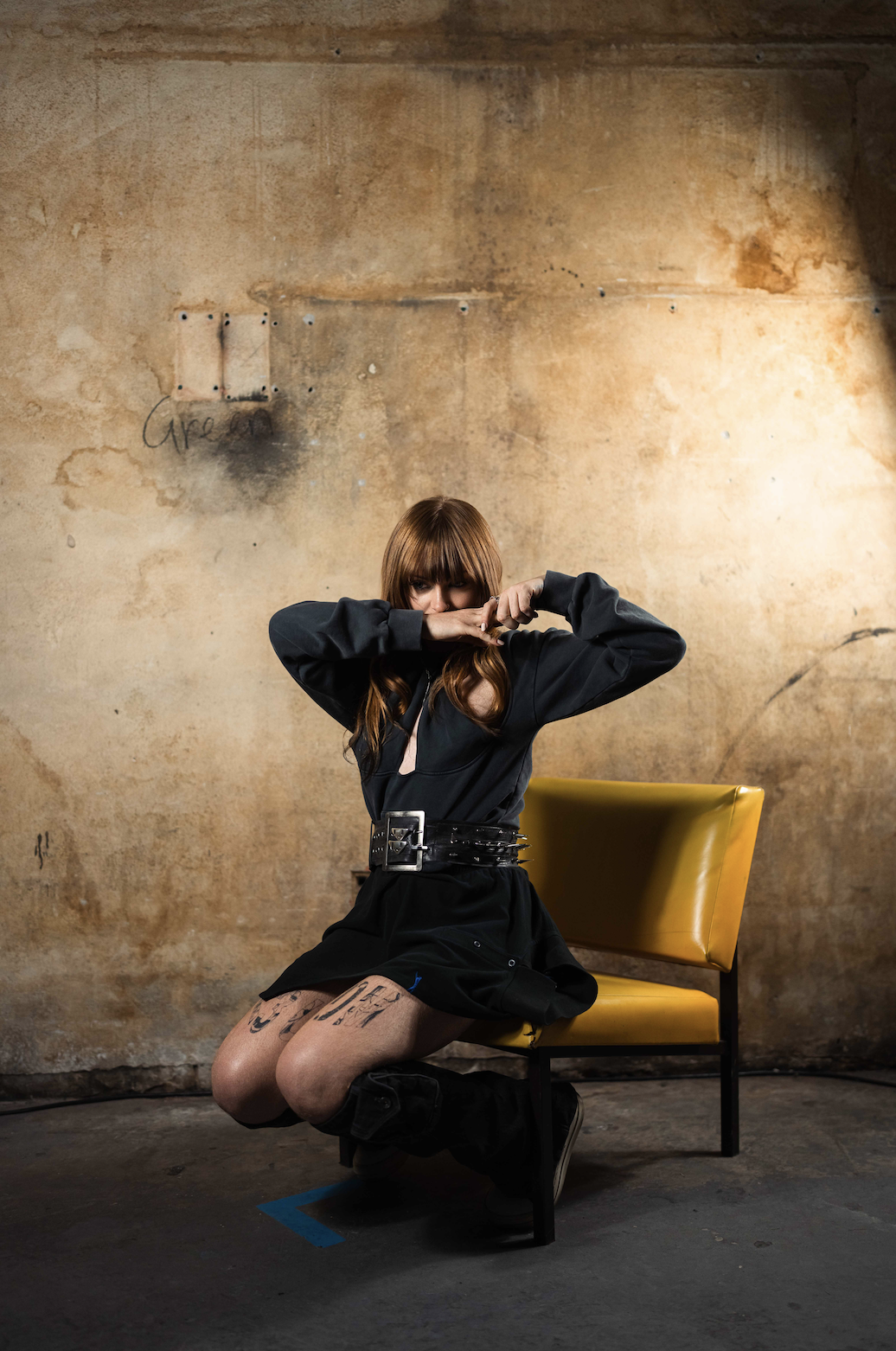
“I don’t feel like I’d be doing all the kinds of things that I do without it,” she reflected. “Particularly because I’m from a smaller town and not a city where there’s lots of culture and electronic music going on.”
When looking at this kind of influence in the grand scheme of naming, writing and organising an album called ‘I Love My Computer’, it might be easy to think of this as a skin-deep kind of attachment that the majority of people might share with memes, Vines, TikToks, creepy pastas and all manner of ‘content’. For Nina, though, her connection with it goes far further.
“If I were the age I am even 20 years ago, it would be so different. I don’t know how much of it is nature and nurture, you know what I mean? There’s probably parts of me that would be the same without the internet, but this exact, specific thing that I’m doing right now definitely doesn’t feel like it’s what I would be doing without it.”
Nina’s descent into electronic music and production has been primarily driven by and dependent on what was available online. Like many producers, Nina acquired the vast majority of her skills through tutorials, forums, and online knowledge-sharing. Like the rest of her articulation of her life online, she clearly wears this with a badge of honour, telling me that “It’s all kind of just learned from YouTube, basically. I learn some things from collaborating with friends; we always show each other new techniques or plugins, but it’s always been kind of instinctual.”
For some people, Nina’s ‘sudden’ appearance in the limelight may appear to be just that. In reality, she has been working on this hobby for an incredibly long time, and with people beside her who have seen what she has to offer from a very young age. “I’ve been writing songs since I was little, just because it felt like a fun thing to do, and they weren’t very good. But it’s always been a hobby, because it felt good,” she said, smiling.
One of those people is Nina Agzarian, also known as Nina Las Vegas, and founder of NLV Records. ‘I Love My Computer’ is only the latest piece of Ninajirachi's work to be released on the label, with the relationship starting with ‘Lapland’, Nina’s first EP in 2019. NLV Records is, as of the recent ARIA Award announcements, now the second most-nominated independent label in the awards’ history, a massive achievement considering how dominating the major labels have been in both the awards running and their establishment.
Nina Las Vegas’ influence on Australia’s club culture, from her time at Triple J to the endearing international influence of NLV Records, is something that has clearly inspired Nina’s work and outlook for the last 9 years. “Nina has been my hero and my idol since I was in early high school, so it’s crazy that she’s part of my team now,” she said proudly. “I’m so grateful that she took me on when I was so young and didn’t know anything. She’s been so generous and has taught me so much.
There’s no one else I would rather be doing it with.”
It’s with NLV’s experience and backing that Nina has been able to navigate the musical world in a way that feels truly authentic to her. Nina Las Vegas left Triple J to establish the label in 2015, at a time when the likes of Hermitude, Tkay Maidza, Flume and many more were defining Australia’s electronic sounds. These brighter, more future-bass and ‘club'-focused acts had a grip on a country that, at the time, was still grappling with its own kind of ‘modern’ musical identity.
Arguably, in the years since then, the fight for that individual identity was, at least on a more commercial level, lost. Australia’s biggest dance music exports are, for the most part, playing sample-driven disco house in Ibiza, not forging their own path. The influence of genres and scenes overseas has become impossible to ignore. UK bass and hardgroove in particular permeate almost every set, even when played by international acts on Australian shores, and the country’s more individual musical styles are often locked away at events and festivals looking to safeguard what they have.

As this international influence has become more present, so too has an even more present idea of what is truly ‘cool’. Faster ‘techno’, hard house and a return to the ‘rave’ aesthetics of the 90s are winning the commercial race in Australia, a particularly one-sided race when, in the grand scheme of the world, big brands may deem it ‘uncool’ to express too much emotion.
Nina is not a person to critique the likes and passions of others. In the conversation we shared, and if anyone were to take a glance at how she presents herself even online, that much is clear. For her, instead of pointing at others, she reflected on why the music she likes, bright, exciting, passionate and EDM-inspired, is enduringly essential to hear.
“When you start to get a bit older, you begin to like things because other people like them. You start to care more about how you’re perceived. But when you’re super young, you just like things because they make you feel good.
Australia is a bit more isolated from the rest of the world, but maybe that feeling of just feeling so good about enjoying music is infectious and starting to spread a little bit more here.
Maybe people are starting to think, ‘oh, this actually feels better than any amount of cool that I could possibly feel.’”
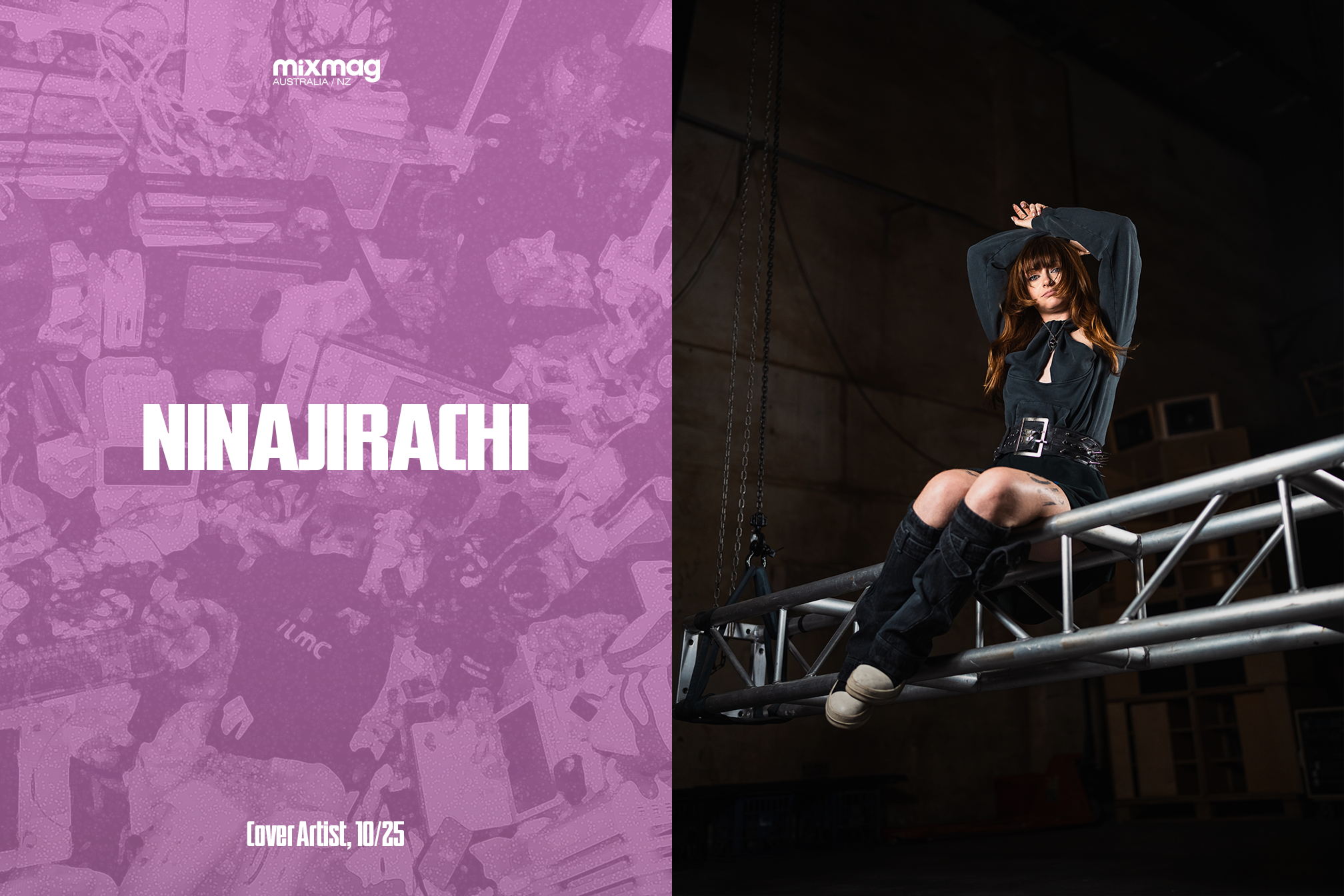
The time that Australia has taken to embrace EDM truly has, thankfully, not slowed Nina down. In a profession that is entirely dependent on the support of fans, Nina has found one of the most loyal and supportive fan bases there is, not only at home but also across the world. Recently, this has involved her travelling regularly to North America and a few stints across Europe. In the United States, EDM is one of the most popular scenes, with many American producers defining the way EDM is played, and to many, that DJ culture is viewed.
Even Nina admits that fans need to ‘let go’ of their ego in how they approach a culture which can, admittedly, be a little ‘cringe’, saying, “If you think about EDM tropes, it’s literally people going on the mic and saying, ‘put your fucking hands up!’ Like, you have to not really care what people think of you to do that. It’s kind of cringe, and free, in the best way. I don’t know why more people are doing that now, maybe because it feels really good.”
While Nina doesn’t explicitly ask the listener to put their fucking hands up throughout ‘I Love My Computer’, it does reflect a changing and incredibly fluid approach to crafting an album around songs which, in the grand scheme of music, are far likelier to be played in isolation. Skrillex’s latest release, a 34-track album titled ‘FCK U SKRILLEX YOU THINK UR ANDY WARHOL BUT UR NOT!! <3’ sits at the most intense side of this spectrum, with each track only lasting an average of 1 minute and 21 seconds. Each does, however, flow into one another in a style incredibly typical of a Skrillex set, with sudden changes, breakdowns and samples remaining consistent throughout its 46-minute runtime.
‘I Love My Computer’ is by no means a Skrillex set, but it does flow together like a live performance, or a set Nina has performed at the likes of EDC Las Vegas. That choice has been a very purposeful one. “I’m a DJ, and when I tour, that’s the way that I play,” Nina said, gesturing further with her hands than she had previously. “I wanted to make (the album) feel a little bit like that experience… I wanted to have the momentum going the whole time, and not just have any of them fade out before the next song starts. If I heard that, I’d realise that was wrong, and actually changing the nature of a song so it moves more smoothlyThe resulting effort that Nina has gone through shines. ‘iPod Touch’s electro-heavy bassline flows perfectly into ‘Fuck My Computer’, which takes that same line and turns it up to 11. So too, the former ends with Nina saying “it sounds like”, cut off as that bassline cranks into the picture, like a DJ’s backspin given a contextual place all of its own.
‘ฅ^•ﻌ•^ฅ’, while a track entirely of its own, features the exact choir-like singing and integral element of ‘All I Am’, with the former acting as an intro of sorts, six songs into an album.
‘It’s You’ would feel appropriate as the record’s closer, but instead, ‘All At Once’ is the album’s encore, with Nina throwing an insane series of rhythms, breaks and melodies in our face before coming to a gentle close.
“It’s just such fun, hedonistic music,” she laughed.
The ‘reputation’ of EDM and the idea of it as a more hedonistic side to electronic music would, however, needlessly insinuate that such a musical space doesn’t leave room for meaningful work. As much as ‘I Love My Computer’ is a wild, spectacular ride filled with many a hands-in-the-air or bass face moment, there’s a purpose on this album that Nina has taken her time to understand and communicate.
-
“In the past, when I’ve made 10 or 12 track projects, the process has been that of, ‘okay, I’ve made all of this music, I’ve put it together, I’ve given it a name and tried to find a thread between it and package it up after.’ There wasn’t necessarily a thesis going into the making of the music.
I’ve always wanted to make an album, but I wanted it to be really intentional and have a lot of cohesion between the songs. So when I had, maybe, five or so songs, I tried to find the commonality between those. It was then that I realised what the theme and the title were.
From there, I wrote a number of songs and completed several with that in mind. I had a North Star throughout the process of making it that I didn’t feel like I had with other music and other projects. That doesn’t mean that they’re worse or inferior, just that they were made with less intention. Whereas, with my album, I wanted to know what it was about in the making of it.
I changed the structure around a lot of times. The tracklist was quite different, and I would often finish songs based on their position in the tracklist. Sometimes, I would adjust intros or outros to make them flow more smoothly together, or trim small bits of silence to create a more cohesive experience.
(Once it came together), the biggest difference was in the themes kind of falling into place perfectly.”
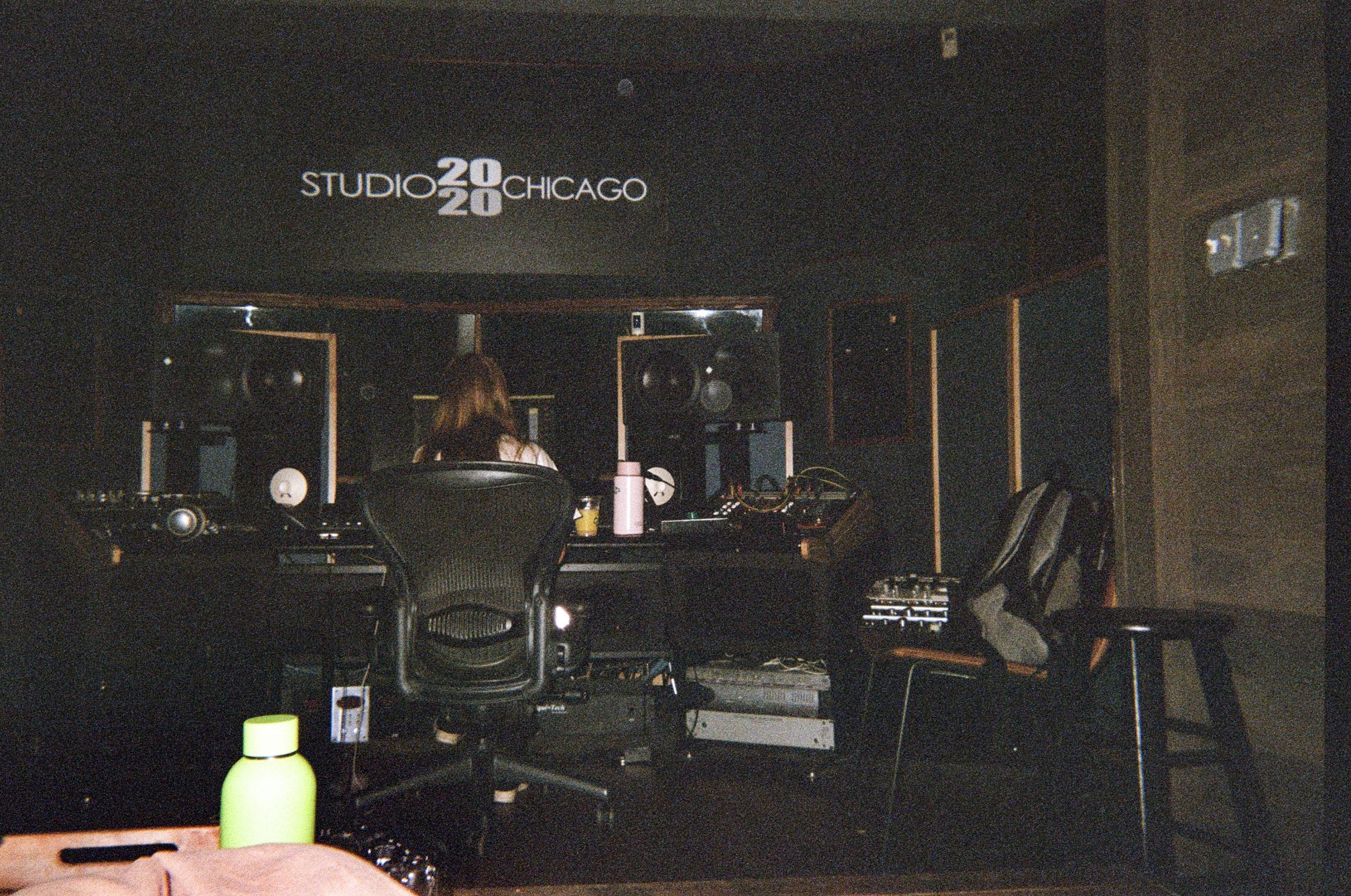
To fall into place perfectly can, generally, mean two different things.
On the one hand, to happen serendipitously. For there to be a ‘right place, right time’ kind of influence that, ultimately, lessens the weight and meaning of effort. In a world more chronically online than ever before, it’s this kind of thinking that gets applied to anyone who appears in the limelight at a young age.
Instead, Nina’s fitting into place perfectly, not only across this record, but in her current success, is one built on her own passion, artistic vision, dedication to her craft and, ultimately, her empathy. Nina has communicated something important, not only to her, but to so many of us, in a time where musical communication can be so devoid of any meaning whatsoever.
‘I Love My Computer’, as a result, becomes not only an ode to her computer, technology and the internet, but to love itself.
“When I was looking at demos, I kept asking, ‘What’s the through line here?’ I had this inkling that it was something devotional, but it wasn’t about love songs or people, necessarily. I realised soon after that everything I was doing was really just making laptop music that I learned how to make from YouTube.
…and I was like, ‘Oh man, I love doing this.’
‘I love my computer.’
My music has always been an ode to my computer without me really knowing it.”
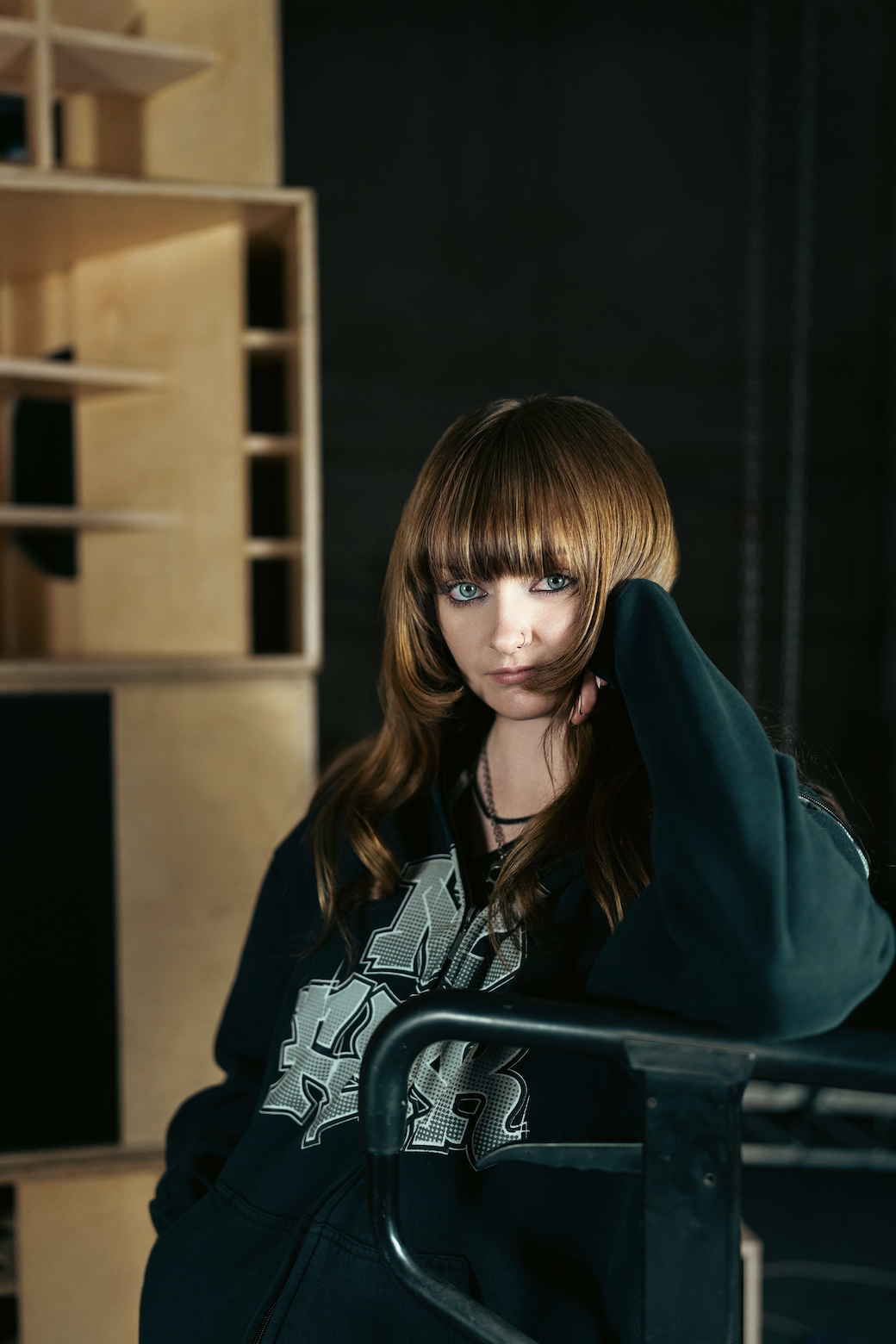
-
Jack Colquhoun is Mixmag ANZ's Managing Editor. Find him on Instagram.


